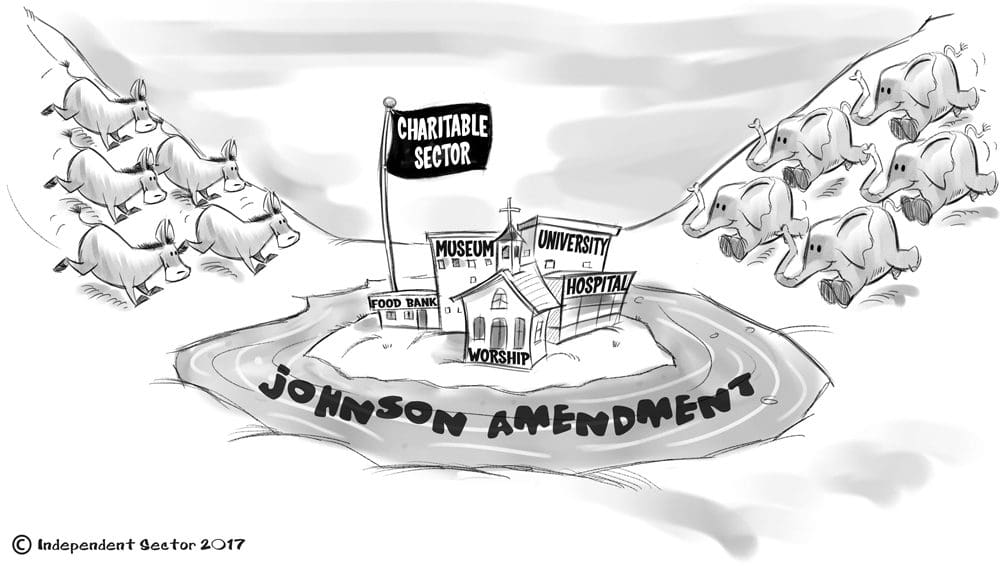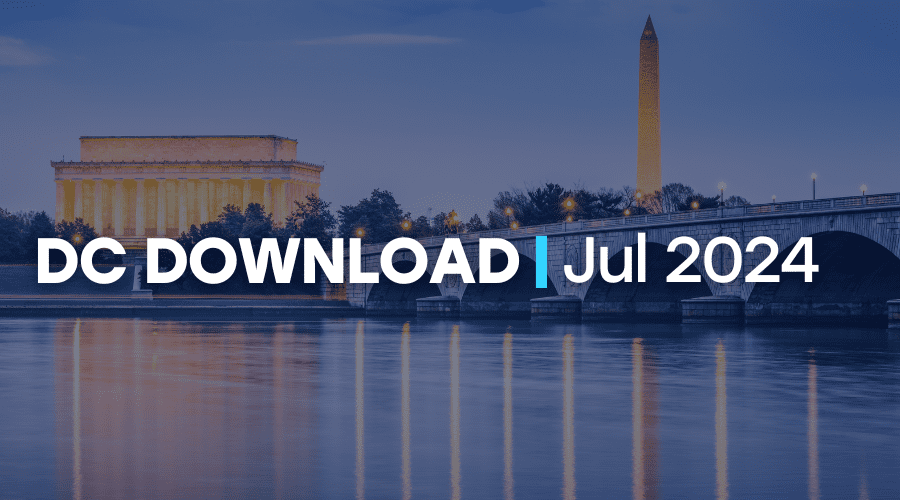
If you’ve read anything at all about the Johnson Amendment over the past year, whether on our blog or from fellow advocacy organizations, you’ve undoubtedly been exposed to a potential parade of horribles if the law were to be weakened.
The scenarios are as varied as they are chilling: Republican and Democratic food banks, liberal and conservative museums, and elected officials refusing to work with specific charities, because the organizations did not endorse them in the last election. If you’ve been observing the current partisan political climate, these images not only are possible, they may even be probable. If our sector fails to block efforts to weaken the Johnson Amendment, our organizations may be pressured by constituents, donors, board members, and elected officials to choose a political party.
What is the Johnson Amendment again?
The Johnson Amendment, which since 1954 has prohibited all 501(c)(3) organizations, including houses of worship, from endorsing political candidates, has been instrumental in establishing the nonprofit charitable sector as one of the only platforms of nonpartisan civic engagement in the United States. It has allowed for the pursuit of missions and the service of others and communities to rise above politics, and it’s been one of those foundational protections of nonpartisan issue advocacy that we often take for granted – until it’s threatened.
What’s at stake?
President Trump and other conservative political leaders – and yes, even some nonprofit organizations – have supported repealing or weakening the Johnson Amendment through tax reform and appropriations bills. While these efforts are couched as protecting freedom of expression for both charitable organizations and churches, they ignore basic principles in law that already allow nonprofits to advocate on issues and causes most important to them and those they serve. We already can inform candidates, elected officials, and the general public on about how policy proposals might impact our missions and the communities we serve. We just can’t encourage citizens to vote for or against a candidate.
Our sector currently enjoys freedom from political entanglements – the ability to build relationships on common understandings across communities, governments, and interest groups. Imagine if that suddenly went away. As charities, either voluntarily or through pressure, venture into political endorsements, would their board, donors, volunteers, and people they serve agree about their candidates of choice? How would the sector’s new partisan identity impact the public’s trust in our work or our perceived expertise when we weigh in on policy issues? To what extent will political endorsements raise questions among both donors and policymakers regarding charitable giving and the charitable deduction?
Perhaps the dystopian nonprofit landscape described above wouldn’t fully come to pass with repeal, but there is no question that our organizations would suddenly be faced with even tougher questions and expectations if endorsing candidates and raising money for partisan purposes became the norm.
How you can help
You can help by exercising a right you already have as a nonprofit organization. Nonprofit organizations and houses of worship across the country are speaking out, and they need your help.
Take just a few minutes using our advocacy tool to directly reach out to your members of Congress to share with them how protecting the Johnson Amendment helps you pursue your mission.
Protect the sector’s trusted voice by defending one of the last nonpartisan spaces in American civil society.


